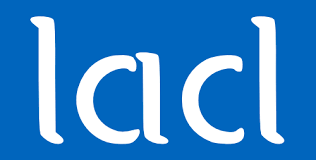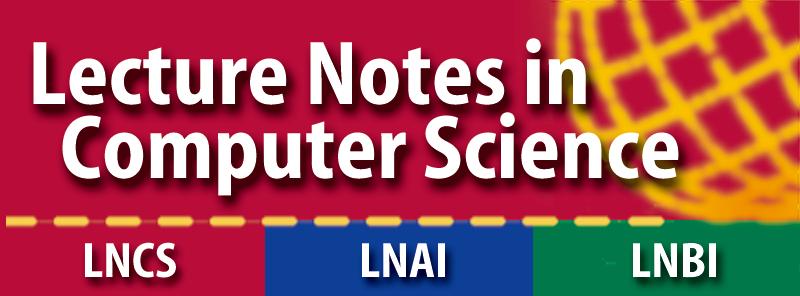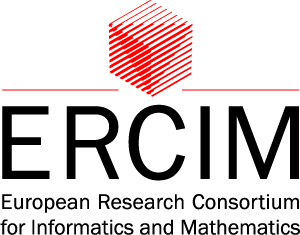NEW! Free access to Springer LNCS proceedings of FMICS 2021
The aim of the FMICS conference series is to provide a forum for researchers who are interested in the development and application of formal methods in industry. FMICS brings together scientists and engineers who are active in the area of formal methods and interested in exchanging their experiences in the industrial usage of these methods. The FMICS conference series also strives to promote research and development for the improvement of formal methods and tools for industrial applications.
FMICS is the ERCIM Working Group conference on Formal Methods for Industrial Critical Systems, and it is the key conference in the intersection of industrial applications and Formal Methods.
The list of accepted papers is available here.
Topics
Topics of interest include (but are not limited to):- Case studies and experience reports on industrial applications of formal methods, focusing on lessons learned or identification of new research directions.
- Methods, techniques and tools to support automated analysis, certification, debugging, descriptions, learning, optimisation and transformation of complex, distributed, real-time, embedded, mobile and autonomous systems.
- Verification and validation methods (model checking, theorem proving, SAT/SMT constraint solving, abstract interpretation, etc.) that address shortcomings of existing methods with respect to their industrial applicability (e.g., scalability and usability issues).
- Impact of the adoption of formal methods on the development process and associated costs. Application of formal methods in standardisation and industrial forums.
New this year! Special track papers on Formal Methods for Blockchain-based Smart Contracts
We invite submissions in topics related to the formal specification, analysis, and verification of blockchain-based smart contracts. For this occasion, the Program Committee has been enlarged with experts from the blockchain domain. Formatting instructions and the review procedure are the same as the ones for regular papers. However, the authors will need to specifically indicate their interest in the special track during the submission. Papers accepted for the special track will be included in a special session at FMICS 2021 along with a panel on this topic, while they will be published in the conference proceedings together with papers accepted for the regular track.
Submission and Publication
We welcome contributions of different categories:- Regular papers that describe original research work and results. Length: 15 pages + 2 pages of references.
- Short papers that describe work-in-progress, or positions on the future of formal methods. Length: 6 pages + 2 pages of references.
- Tool papers that describe software artefacts. The paper must contain a link to a publicly available video of at most 10 minutes length. Length: 6 pages + 2 pages of references.
- Journal-first papers that summarize a paper recently published in a journal and not yet presented in a conference. The main aim of this category is to allow authors present archived work in a public forum. The original journal paper should have been published between January 1st, 2020 and the date of submission. Length: 2 pages + 1 page of references.
Submissions should clearly motivate relevance to industrial application. Case-study papers should identify lessons learned, validate theoretical results (such as scalability of methods) or provide specific motivation for further research and development.
Submissions should be formatted according to the LNCS style (Springer). All submissions will be reviewed by the Programme Committee members who will make a selection among the submissions based on the novelty, soundness and applicability of the presented ideas and results.
Papers must be written in English and should be submitted as Portable Document Format (PDF) files using the EasyChair submission site:
https://easychair.org/conferences/?conf=fmics2021
The conference proceedings will be published by Springer in the LNCS series. Contributions of the journal-first category will not be included in the proceedings.
Authors should consult Springer’s authors guidelines and use their proceedings templates, either for LaTeX or for Word, for the preparation of their papers. Springer encourages authors to include their ORCIDs in their papers. In addition, the corresponding author of each paper, acting on behalf of all of the authors of that paper, must complete and sign a Consent-to-Publish form. The corresponding author signing the copyright form should match the corresponding author marked on the paper. Once the files have been sent to Springer, changes relating to the authorship of the papers cannot be made.
At least one author of each accepted paper is expected to present the paper at the conference as a registered participant.
Best paper award: A Springer-sponsored award will be presented to the authors of the submission selected by the Program Committee as the FMICS 2021 Best Paper.
Special issue: The Program Committee of FMICS 2021 will invite a selection of accepted papers to submit extended versions to a special issue of the International Journal on Software Tools for Technology Transfer (STTT).
Concerning the COVID-19 Pandemic
Due to the pandemic situation, the organization committee of QONFEST 2021 decided that all conferences will take place online.
Important Dates
- Abstract submission: May 7, 2021
- Paper submission: May 14, 2021 (23:59:59 AoE)
- Author notification: June 28, 2021
- Camera-ready version: July 5, 2021
- Conference: August 24-26, 2021
PC Chairs
- Alberto Lluch Lafuente (Technical University of Denmark, DK)
- Anastasia Mavridou (KBR / NASA Ames Research Center)
Keynote
- Speaker: Joe Kiniry (Galois Inc. and Free & Fair, US)
- Title: Haunting Tales of Applied Formal Methods from Academia and Industry
- Abstract: You learn a lot after being a formal methods researcher and practitioner for 25 years. Half of that time was spent in academia, creating formal processes, methodologies, and tools that I hoped I could secretly impact engineers. Half of that time has been spent in industry, working at companies to transition concept, tools, and technologies in rigorous digital engineering (RDE) with applied formal methods. These days I work at two companies, Galois and Free & Fair, leading R&D in RDE that focus on problems in national security and nationally critical infrastructure. I also work with many of our other Galois spin-outs, such as Muse (now Sonotype Lift) and Niobium Microsystems on these same topics. In this talk I’ll tell a small number of stories about these many years in the field, each of which has, I hope, an actionable nugget of wisdom for the audience at FMICS.
PC members
- Erika Abraham (RWTH Aachen University, DE)
- Massimo Bartoletti (University of Cagliari, IT)
- Maurice ter Beek (ISTI-CNR, IT))
- Simon Bliudze (INRIA, FR)
- Yu-Fang Chen (Academia Sinica, TW)
- Silvia Crafa (University of Padova, IT)
- Hubert Garavel (INRIA, FR)
- Diego Garbervetsky (University of Buenos Aires/CONICET, AR)
- Ákos Hajdu (Facebook Inc, UK)
- Klaus Havelund (NASA JPL, US)
- Anne Haxthausen (Technical University of Denmark, DK)
- Fritz Henglein (University of Copenhagen/ Deon Digital , DK)
- Fuyuki Ishikawa (National Institute of Informatics, JP)
- Xiaoqing Jin (Apple Inc., US)
- Joe Kiniry (Galois Inc. and Free & Fair, US)
- Thierry Lecomte (ClearSy, FR)
- Tiziana Margaria (CSIS, Univ. of Limerick, and LERO, IE)
- Diego Marmsoler (University of Exeter, UK)
- Radu Mateescu (INRIA, FR)
- Dejan Nickovic (Austrian Institute of Technology, AT)
- Corina Pasareanu (CMU/ NASA Ames Research Center, US)
- Anna Philippou (University of Cyprus, CY)
- Jaco van de Pol (Aarhus University, DK)
- Clara Schneidewind (Vienna University of Technology, AT)
- Cristina Seceleanu (Mälardalen University, SE)
- Carolyn Talcott (SRI International, US)
- Virginie Wiels (ONERA/ DTIM, FR)
Steering Committee
- Maurice ter Beek (ISTI-CNR, IT)
- Alessandro Fantechi (University of Florence, IT)
- Hubert Garavel (INRIA, FR)
- Tiziana Margaria (CSIS, Univ. of Limerick, and LERO, IE)
- Radu Mateescu (INRIA, FR)
- Jaco van de Pol (Aarhus University, DK)




